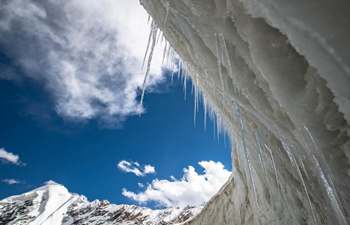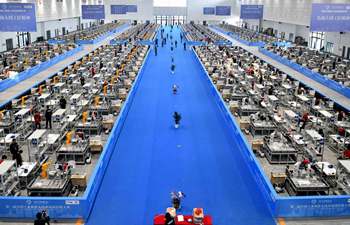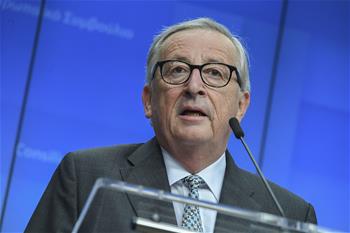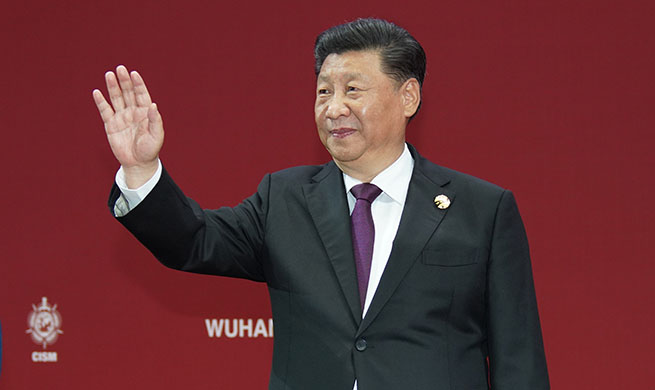by Christopher Guly
OTTAWA, Oct. 18 (Xinhua) -- Based on recent polls and precedents of election results in Canada, Liberal Prime Minister Justin Trudeau could secure his position even if the Liberal Party win less seats than the opposite Conservative Party in Monday's 43rd general election, an expert has said.
Trudeau's political career depends largely on two factors -- one is whether the Conservative Party can win a majority or not, the other is whether Trudeau could secure other parties' support with a Parliament speech outlining his government's agenda, according to Lori Turnbull, director of the School of Public Administration at Dalhousie University in Canada.
As of Friday, polls in Canada show support rate for the Conservatives stood at 31.7 percent, compared to 30.8 percent for the Liberals, who are still favored to win more seats in the Monday election, but not enough to form a majority government as they did in 2015.
In an interview with CTV News on Wednesday, Conservative Leader Andrew Scheer said that he expects other parties "will respect the fact that whichever party wins the most seats gets to form the government."
However, if the Conservatives (have enough seats to) form a minority government, they would have fewer, if any, parties to prop them up to hold power, compared to Trudeau's Liberals, said Turnbull, who holds a Ph.D. in political science.
The leader of left-of-center New Democratic Party (NDP) Jagmeet Singh has already ruled out working with the Conservatives. The NDP gained around 20 percent public support in recent polls, just after the Conservatives and Liberals.
Turnbull told Xinhua that one possible alliance is between the Liberals and New Democrats as long as the two parties reached agreement on the multibillion-dollar project of Trans Mountain pipeline expansion, which the Trudeau government purchased last year and the NDP opposes.
"None of the parties want to go into another election, and will have to figure out a way for the House to work, at least for a little while," the expert said.
Though it is seldom for Canadian parties with less seats in Parliament to lead the government, there are precedents with a coalition government as the biggest possibility, according to Turnbull.
Nearly a century ago, then Liberal Prime Minister Mackenzie King formed a minority government in 1925 with the support of the short-lived Progressives Party, though the Conservatives won 15 more seats than the Liberals in the election that year, Turnbull noted.
Furthermore, the Liberal Party and the NDP have the history of jointly fighting against the Conservatives.
In December 2008, the Liberals and New Democrats were allied in advance of a confidence vote in the House aimed at toppling then Conservative Prime Minister Stephen Harper's minority government, which had just taken power following a general election in October that year.
Generally speaking, "parties are so adversarial, they don't have an incentive to form a coalition," Turnbull said.
However, the current election campaign has raised talk of a coalition government, the expert said, even though opposition leader Scheer has warned that it could result in NDP cabinet ministers serving in a Trudeau Liberal government.












